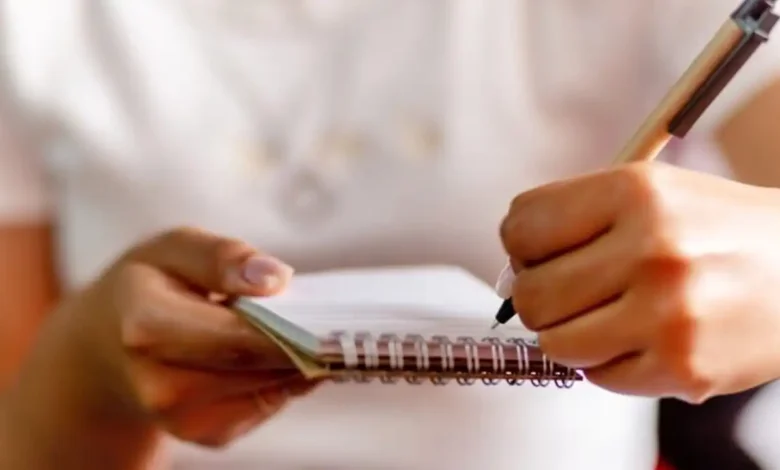Protecting the Integrity of Journalism and Education

In recent times, people are starting to deny the importance of education just because they face tough situations after completing their journey of gaining knowledge. When they don’t get their desired jobs, they fall into a state of hopelessness. They think their future will be ruined, or they have no future. Nowadays, a growing number of individuals have begun to question the value of education. This skepticism stems from the difficulties faced by many graduates in securing their desired jobs. The frustration and disappointment that accompany unfulfilled expectations can lead to feelings of hopelessness, causing some to wonder if education is truly worth the effort. However, it is crucial to recognize that the Integrity of Journalism and Education plays a vital role in shaping society and should not be undermined.
There is no denying that the current system is playing a leading role in bringing them into darkness, such as those mentors who are selling their gift of gab. When these mentors are exposed by some experts and investigative personalities, students start to think that it’s useless to be educated, as they are unable to get good jobs or earn money.
The Real Issue is Quality and Standards
It’s like people who have no connection with journalism, have never worked in it, and yet they’re all becoming editors, even in my presence, despite my eight years of experience and an entire education in Journalism. The fake people just buy followers and call themselves columnists, mentors, etc. They are the real melodrama. There is no problem with education; the issue is about the Integrity of Journalism and Education, along with the quality and standard of learning. These fake personalities degrade the essence of education. Students are urged to get good grades so they can compete with each other and win the battle, but what about the mentors? It’s essential to recognize that the problem doesn’t lie with education itself, but rather with its declining standards. In this pursuit, they miss out on the true value of gaining knowledge.
The Rise of Self-Proclaimed Experts
A real issue in the field of education is the rise of self-proclaimed experts. In recent times, social media has given rise to a new breed of self-proclaimed experts. These individuals, often with little to no experience or credentials, have taken to platforms like Twitter, Facebook, and Instagram, and wait—there’s also WhatsApp channels—to peddle their opinions and advice.
The field of journalism is no exception. Despite having no formal training or experience in journalism, some individuals have taken to calling themselves editors, mentors, and experts. They flaunt their fake credentials and boast about their non-existent experience, all in an attempt to gain followers and credibility. One of the most disturbing trends among these self-proclaimed experts is the practice of buying followers. By paying for fake followers, these individuals can artificially inflate their online presence and make themselves appear more credible than they actually are. The rise of fake experts and self-proclaimed gurus has serious consequences. Not only can they spread misinformation and confusion, but they can also undermine the Integrity of Journalism and Education by diminishing the credibility of genuine professionals.
Read Also: Parachinar Massacre, Sectarian Violence: A Stark Reminder of Injustice
As someone with eight years of experience in journalism and a formal education in the field, I am deeply concerned about this growing trend. It is essential that we protect the Integrity of Journalism and Education and ensure that only credible and qualified individuals are recognized as experts. To combat the rise of fake columnists and mentors, we must promote authenticity and accountability. We must verify the credentials and experience of those who claim to be experts and hold them accountable for the advice and opinions they share.
Education encompasses more than just academic achievements; it’s about cultivating character, integrity, and a strong moral compass. It’s about becoming a well-rounded individual with a deep understanding of the world and its complexities. Integrity of Journalism and Education should inspire curiosity, foster empathy, and promote lifelong learning.
Addressing the Copy-Paste Culture
In today’s digital age, the ease of sharing and accessing information has led to a proliferation of duplicate content across various social media channels and online platforms. This phenomenon, often referred to as “copy-pasting,” has sparked concerns among content creators, mentors, and industry experts. Along with education, I am all about delving into the world of copy-pasting, exploring its implications, and providing guidance on how to tackle this issue.
With the advent of social media and online platforms, sharing content has become effortless. However, this ease of sharing has led to a culture of copy-pasting, where individuals replicate content from other sources without proper attribution or permission. This phenomenon is not limited to social media; it has also permeated the world of mentorship, where individuals may replicate advice, strategies, or even entire programs without proper credit or compensation.
To combat copy-pasting, mentors and content creators can employ several strategies:
- Incorporate distinctive watermarks or branding elements into your content to make it easily identifiable.
- Register your work for copyright and trademark protection to safeguard your intellectual property.
- Always provide clear attribution and credit to original creators when sharing or referencing their work.
- Focus on creating unique and original content that adds value to your audience.
- Educate your audience about the importance of originality and the consequences of copy-pasting.
- Encourage community engagement and feedback to foster a culture of originality and creativity.
Upholding the Integrity of Journalism and Education
The Integrity of Journalism and Education is under threat from the proliferation of fake sub-editors, mentors, researchers, copy-paste conundrums, and self-proclaimed experts. The ease of sharing and accessing information has led to a culture of complacency, where individuals prioritize convenience over credibility.
Compromising the Integrity of Journalism and Education has far-reaching consequences. It undermines the trust and credibility of institutions, perpetuates misinformation, and devalues the hard work and dedication of genuine professionals. To restore this integrity, we must promote a culture of accountability and authenticity. This requires verifying credentials, fact-checking information, and holding individuals accountable for their actions.
We must also empower individuals with critical thinking and media literacy skills, enabling them to navigate the complexities of the digital landscape and make informed decisions. The rise of self-proclaimed experts and fake gurus is a disturbing trend that must be addressed. By promoting authenticity and accountability, we can protect the Integrity of Journalism and Education and ensure that only credible and qualified individuals are recognized as experts.
As a journalist, it is my duty to preserve the value of originality and intellectual property, recognizing the efforts and contributions of genuine creators and innovators. Let us join forces to uphold the Integrity of Journalism and Education and create a culture that values authenticity, accountability, and originality. Together, we can ensure that the pursuit of knowledge and truth remains a cornerstone of our society.
 Quraitulain Qureshi
Quraitulain Qureshi
Quraitulain Qureshi is a seasoned journalist and a dedicated CSS mentor. She combines her deep understanding of current affairs with a passion for guiding aspiring civil servants. You can reach her at 1995faded@gmail.com